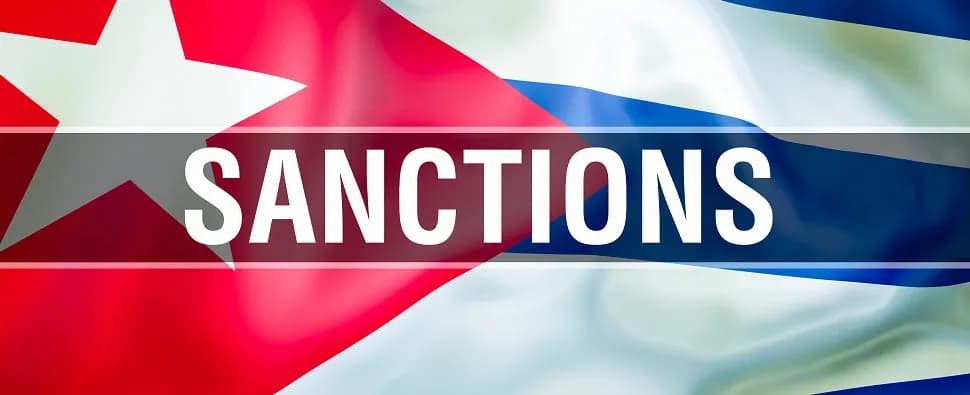
The economic sanctions imposed by the United States on Cuba are among the longest-standing and most stringent in global practice. These measures, aimed at limiting Cuba’s economic activities and political influence, are regulated by the Office of Foreign Assets Control (OFAC) of the US Department of the Treasury. For entities involved in international trade and financial transactions with Cuba, it is critically important to understand when an OFAC licence is required to avoid serious legal repercussions. Let’s explore the history of these sanctions, their key aspects, the risks of non-compliance, and instances where obtaining a licence is mandatory.
The Background of US Economic Sanctions Against Cuba
US sanctions against Cuba trace their origins back to the 1960s, when Cuba nationalised American property, prompting a sharp response from Washington. Over the decades, the sanctions were intensified and expanded, covering an increasingly broad array of economic and financial sectors. Key pieces of legislation, such as the Trading with the Enemy Act, the Helms-Burton Act, and the Cuban Democracy Act, provided the legal foundation for imposing stringent restrictions aimed at isolating the Cuban economy and preventing its access to international markets.
OFAC sanctions against Cuba
The sanctions imposed by OFAC cover a wide range of economic and financial operations that can only be carried out in compliance with strict rules and, in some cases, with the appropriate licence.
Travel restrictions
One of the key aspects of the sanctions are the travel restrictions to Cuba. US citizens and individuals under US jurisdiction are prohibited from visiting Cuba for tourism purposes. However, there are a number of exceptions, including trips for family reasons, educational and humanitarian missions, journalistic activities, and religious events. For such trips, an OFAC license may be required, which must be obtained before the journey begins. Failure to comply with these requirements can lead to serious sanctions, including a ban on further travel and fines.
Should you encounter any issues related to the sanctions against Cuba by the US, we recommend seeking advice from Anatoly Yarovoy, a solicitor at Interpol’s law firm. Our solicitor specialising in sanctions against Cuba will provide you with expert legal defence of your rights and interests, minimising the risk of fines and reputational damage to your company.
Trade and financial sanctions
Trade and financial sanctions are the primary tool for influencing the Cuban economy. They include several key restrictions:
- Export and import: American companies are prohibited from exporting most goods and services to Cuba, except for those permitted under special licences. This applies to both direct and indirect supplies through third countries.
- Financial transactions: Any financial dealings with Cuban organisations or individuals located in Cuba require an OFAC licence. This applies to transferring funds, opening bank accounts, and making investments.
- Technology and telecommunications services: The provision of technology and telecommunications services to Cuba is also regulated by sanctions. This may include the sale of equipment, software, and the provision of internet services.
- Joint ventures and investments: Conducting business in the form of joint ventures with Cuban partners is only possible with an OFAC licence, especially if it pertains to strategically important sectors such as energy or telecommunications.
Sanctions breach risks
Violating the OFAC sanctions regime regarding Cuba can lead to serious consequences for both legal entities and individuals. Primarily, this involves hefty fines that can amount to millions of dollars. Beyond financial penalties, companies may face criminal prosecution, leading to significant reputational damage and restricted access to American markets. To minimise risks, companies and individuals must closely monitor changes in the sanctions regime and timely obtain the necessary licences for their operations.
Situations where a licence is required
The OFAC sanctions against Cuba stipulate a number of instances where a licence is required to carry out transactions related to Cuba:
- Export and import: As previously noted, a licence is required to export certain categories of goods and services to Cuba. This is particularly relevant for agricultural produce, medicines, and medical equipment.
- Financial operations: all transactions related to Cuba, whether it’s transferring funds or opening accounts, must be licensed. This requirement applies to both companies and individuals.
- Tourist travel: for trips to Cuba, a licence is required under several exceptions, including for educational programmes, humanitarian missions, and journalistic activities.
- Investments and joint ventures: any investments in the Cuban economy, particularly in strategic sectors, require obtaining an OFAC licence.
OFAC licensing solicitors
Legal assistance plays a pivotal role in adhering to sanctions regimes and obtaining the necessary licences. Lawyers specialising in sanctions issues can help organisations and individuals develop strategies for compliance with sanctions legislation, conduct the required checks, and apply for licences. They can also represent their clients’ interests in the event of investigations by OFAC and provide defence in legal proceedings.
Companies operating in the international market and having ties with Cuba must pay special attention to compliance with the sanctions regime. OFAC licensing solicitors can provide invaluable assistance in navigating through complex legal requirements and minimising risks associated with sanctions.